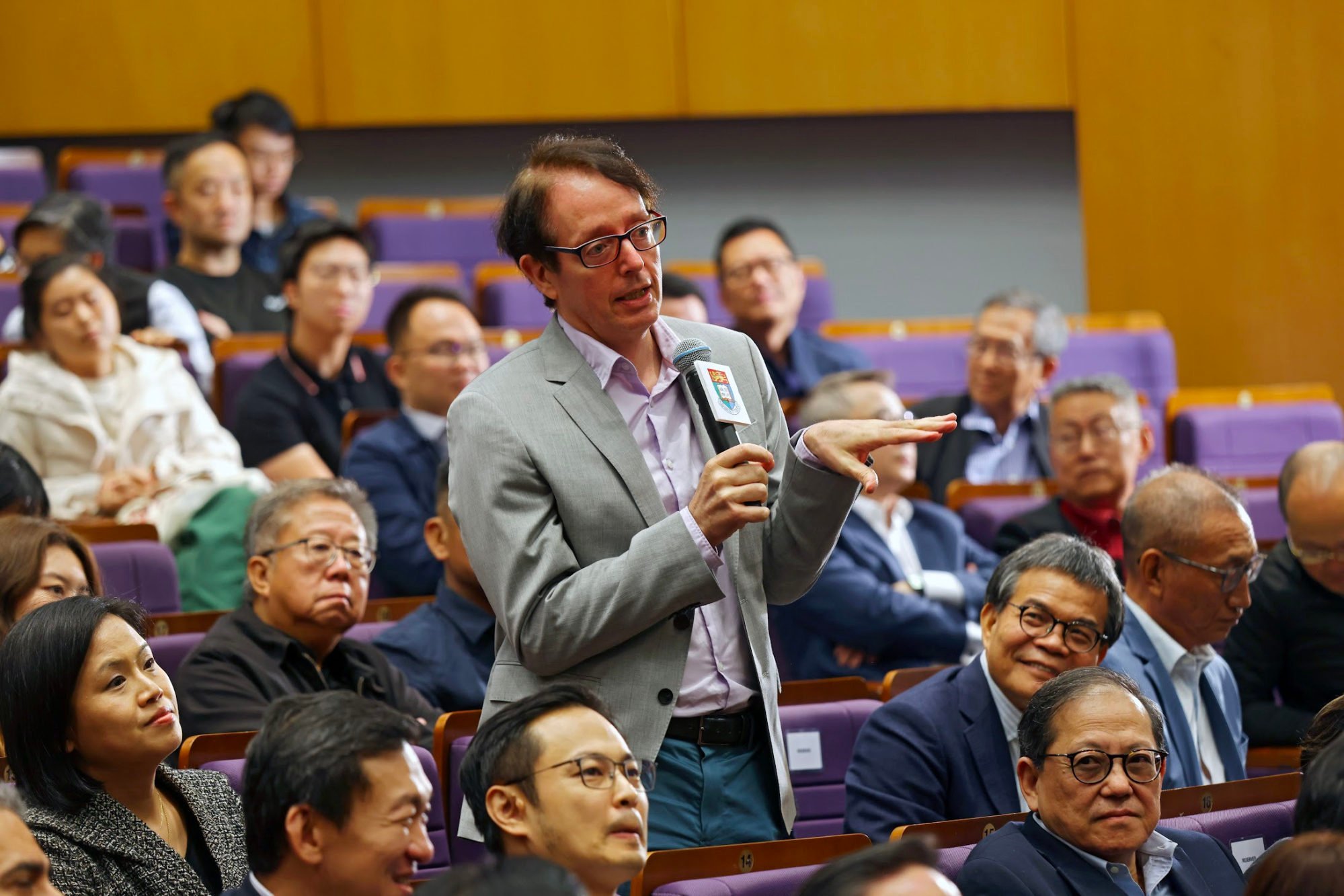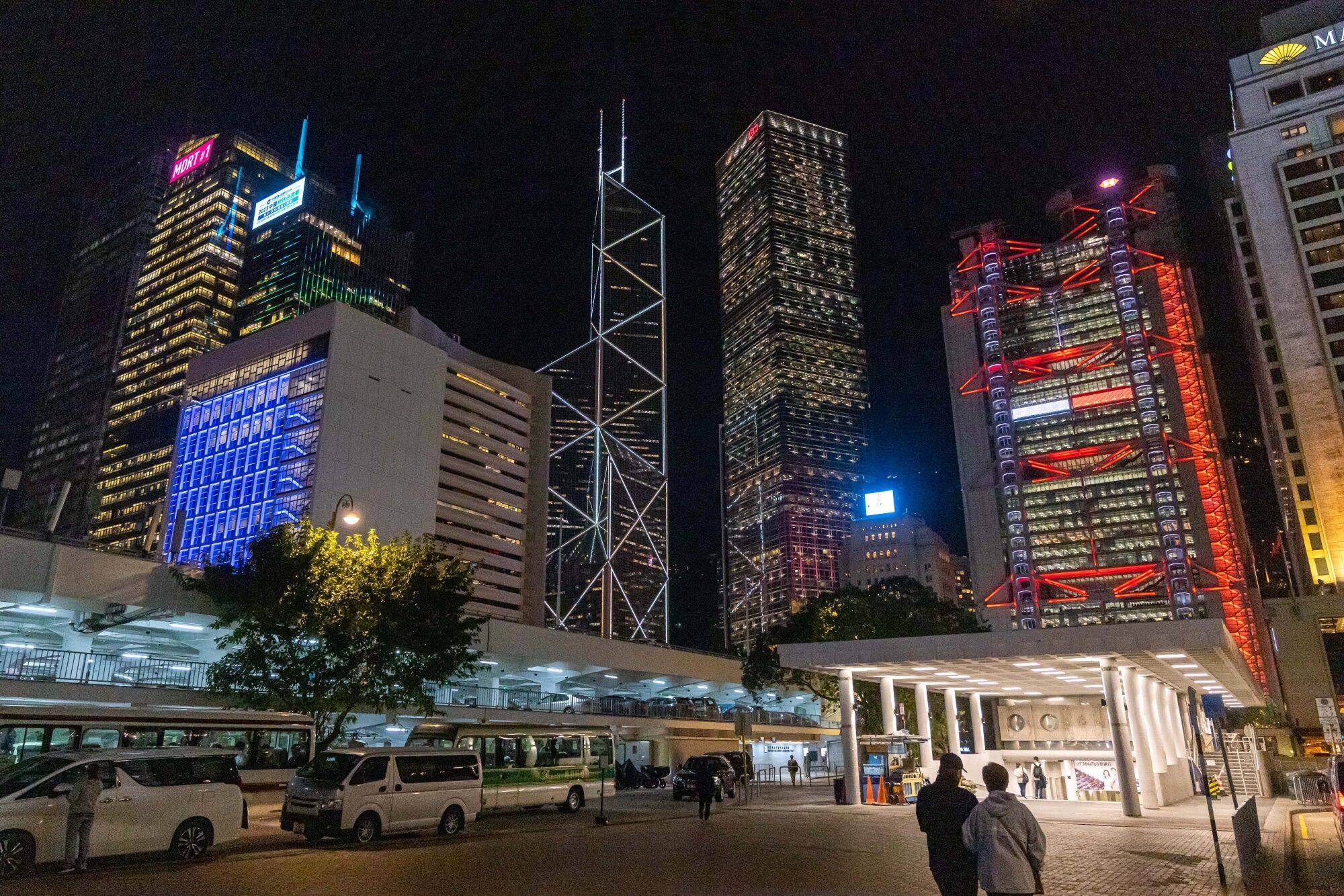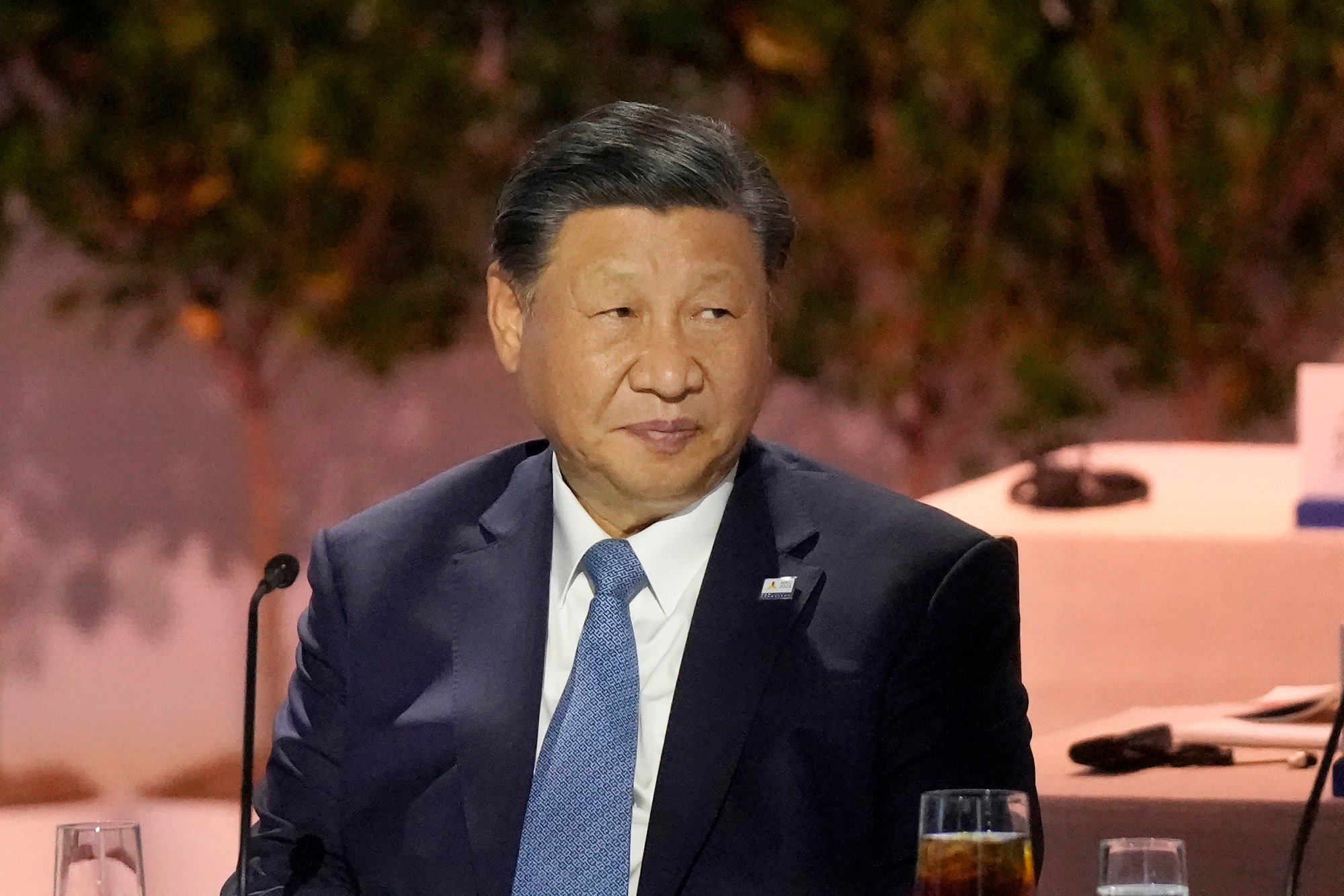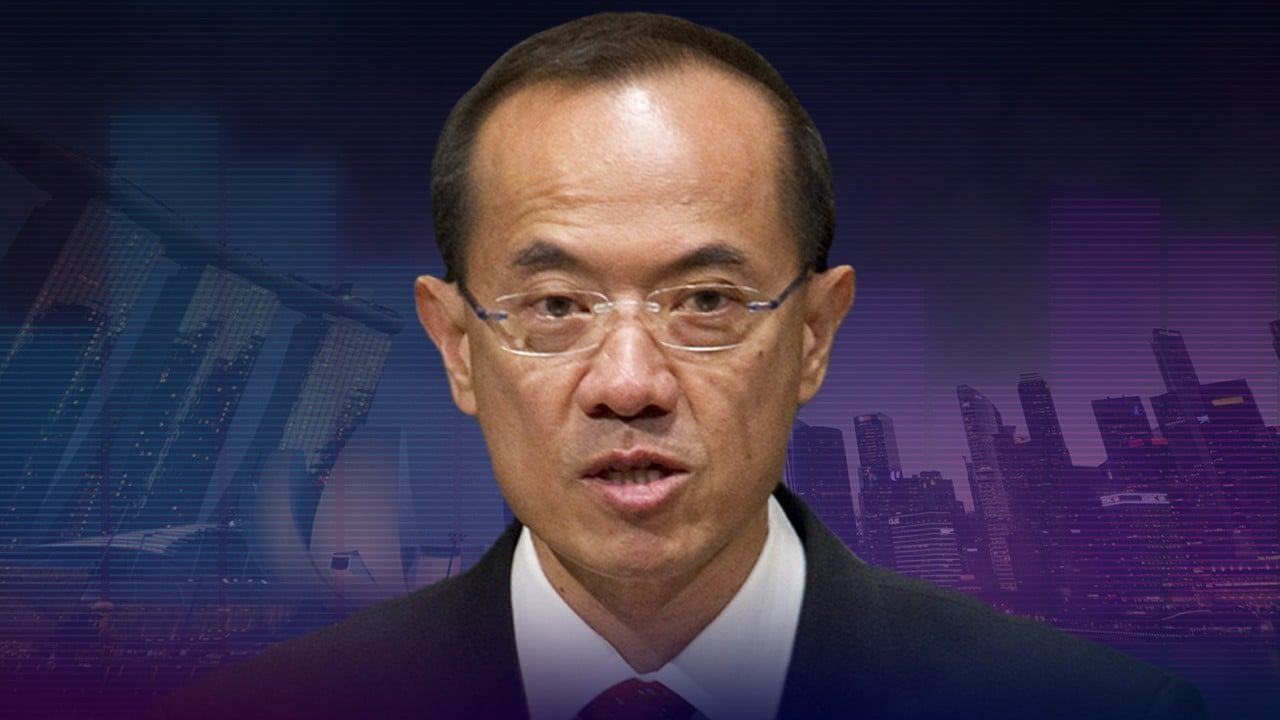Edited excerpts of Yeo’s speech and his responses during the question and answer session are featured below.
China must avoid ‘long, dark tunnel’ of nuclear rhetoric: Singapore’s George Yeo
China must avoid ‘long, dark tunnel’ of nuclear rhetoric: Singapore’s George Yeo
Q: What do you see as the biggest reason for current global tensions?
Q: Is China’s rise a threat to America?
A: Right now, the Americans and the wider West, they don’t like the fact that for the first time in a long time, others are looking them in the eyes and saying, ‘No, we don’t agree with you. We have our own values.’
China’s rise is not a threat to America because China has no wish to invade America or to absorb America. But China’s rise is a threat to American dominance in the world. Others will look at it and say look, if China can be independent, we too can be independent.
George Yeo on Singapore’s balancing of cultural ties amid China’s rise
George Yeo on Singapore’s balancing of cultural ties amid China’s rise
Q: Is there a risk of de-dollarisation?
A: My fear is the Americans may exhaust themselves … their servicing costs are going up, and there is inflation. And this may lead to a crisis one day with the way they’re weaponising the US dollar in the financial system. There will be alternatives. The alternative would not be the renminbi. The alternative would be what the world has always been, which is a multiplicity of currencies and species.
Q: What are your thoughts on the current Western suspicion towards Huawei?
My belief is this: the Five Eyes have an amazing surveillance network …[but in wanting] to kill Huawei, the result is that Western countries have shaped policies driven by intelligence considerations. The result is they have hobbled themselves. They are denying themselves bandwidth. The average Chinese today has much more bandwidth than the average American or European because of the policy on Huawei. So yes, intelligence people will have an easier time. But everybody else pays the price.

Q: What do you think of the coming Taiwan election?
A: The Taiwan election is a sideshow. It’s not that important. Even if you let [DPP presidential candidate] Lai Ching-te win, he can only do what the Americans allow him to do. He cannot start the war. Only the Americans can start the war.
Q: Is the fall in foreign investment a threat to mainland China and Hong Kong?
A: Right now, the Americans want to make a point that you introduced the National Security Law, you must pay a price. And they discouraged funds from investing in Chinese stock and into the Hong Kong stock … but think about it. Does China lack capital? China doesn’t lack capital. FDI has fallen. Has it affected China? It hasn’t affected China. It has affected China in terms of networks and knowledge.
… Let’s say America completely decouples from Hong Kong, and you lose 20 per cent. What’s the future? The future is still Europe, Southeast Asia, India, the rest of the world. That will not destroy Hong Kong. Hong Kong still has a bright future even without America, but of course better with America.
Singapore, Hong Kong can work together to become ‘shining cities’: Tan See Leng
Singapore, Hong Kong can work together to become ‘shining cities’: Tan See Leng
Q: Why didn’t Singapore respond to Hong Kong’s 2019 social unrest as it did with Tiananmen in 1989?
A: 2019 and the negativism for Hong Kong after that were very minor compared to what happened after Tiananmen. At that time, Singapore felt it had to shore up Hong Kong. This time around, when Western countries offered [migration paths] to Hongkongers, the underlying motivation was very political. They’re trying to make a point. And unfortunately, many young Hongkongers or many Hongkongers fell for it. Many will regret it and many will come back. No, Singapore doesn’t want to be part of this because it became very political.
Q: How do you view the rivalry between Hong Kong and Singapore?
A: I would say Hongkongers are more bothered by Singapore than Singapore is by Hong Kong. It really doesn’t matter to Singapore, but Hong Kong feels it much more keenly. …
I think the reason is because Hongkongers feel a sense of insecurity. And that causes them to look at Singapore as perhaps a reason for the insecurity. I don’t think Singapore has anything to do with it.

Q: What do you see as the greatest threat to China?
A: The corruption index. If the corruption index goes up in China, that is the beginning of a long decline.
… Corruption is an inseparable part of Chinese culture. Because to Confucius, giving gifts is part of relationships. So every year for Chinese New Year, what do you think of the number of red envelopes for lai see, you know, all the stresses on women in China? …[All] this is to establish relationships. And beyond a point, the gift becomes corruption.

Q: How would you assess European foreign policy today?
A: I’m not sure whether the transatlantic alliance can remain this strong …[a]fter all that effort, they are not winning in Ukraine. The result will be domestic upheaval in every European country and increasing resentment that they were being forced into positions by the US.
China wants Europe to succeed. China wants the euro to succeed because it wants Europe as a separate door close to the Americans. If the Europeans play their cards right, they can maintain the peace in the world …[but] this requires leadership and at the core of that leadership is the Franco-German Alliance.
Which way will China-EU relations go: more cooperation or confrontation?
Which way will China-EU relations go: more cooperation or confrontation?
Q: How will China interact with a weakened Russia, and likewise the US to a weakened Israel?
With Israel, in America, much of it is a result of the Jewish lobby and the support of Christian Zionists. So is this a question about the US political economy and how it operates, but I think it’s a disaster, the Gaza war, for America, because in their support of Israel, they have been viewed negatively in most parts of the world and by most people … We all know that in the end, Jews and Palestinians have to live side by side in that land, and that includes the states. Each can pursue its own destiny.
Q: What are some of the takeaways from the political philosophy of Singapore’s first PM Lee Kuan Yew?
A: You didn’t want to be his enemy. I watched the way he went after some of his opponents, and you didn’t want to be his opponent … But he was not a sadist. When he had achieved his political purpose, he let go.
There was a political detainee who was his rival, Lim Chin Siong. He had a nervous breakdown in prison. And I was told Lee Kuan Yew spoke to the doctor and asked, when he was going to Europe, he said, can he [Lim] come back to politics? The doctor said no. And he left the issue. In other words: if you were no longer a political challenge, there was no need to be vindictive. So I would say he understood power, but he used power with economy.
Q: Are you optimistic about the prospects of stability in the region?
A: I think there’s a good chance we can keep the peace in our region for another generation. There’s a good chance of it. And if we can keep the peace, Singapore and Hong Kong will flourish.


